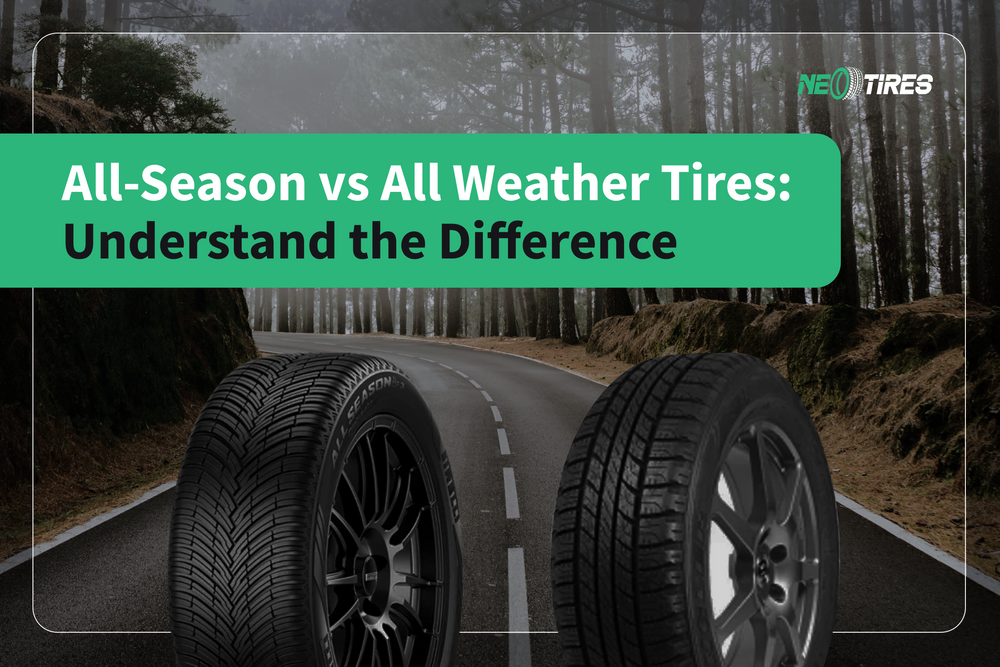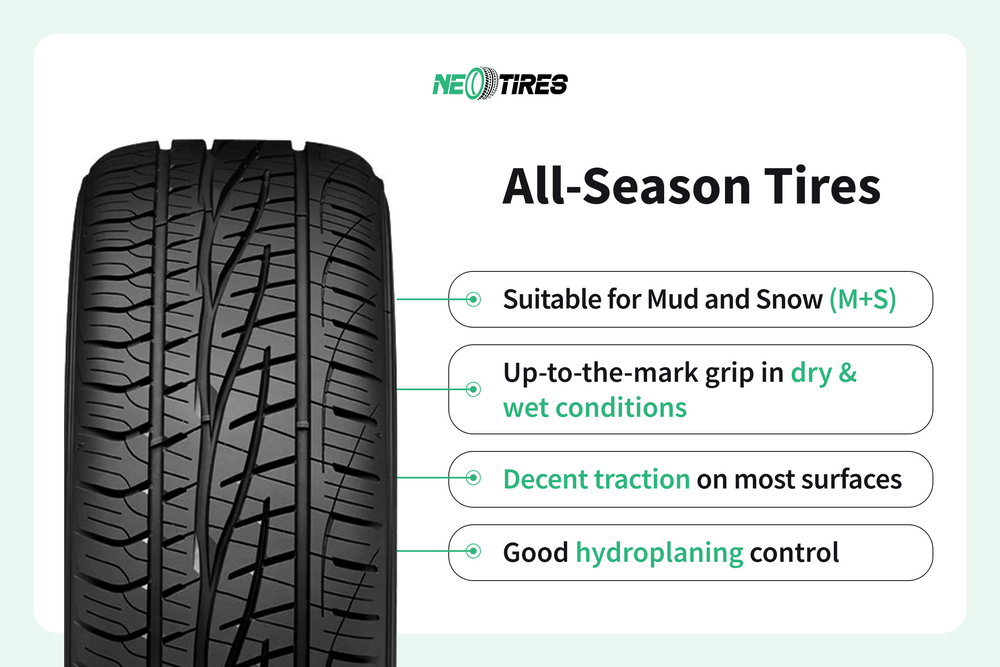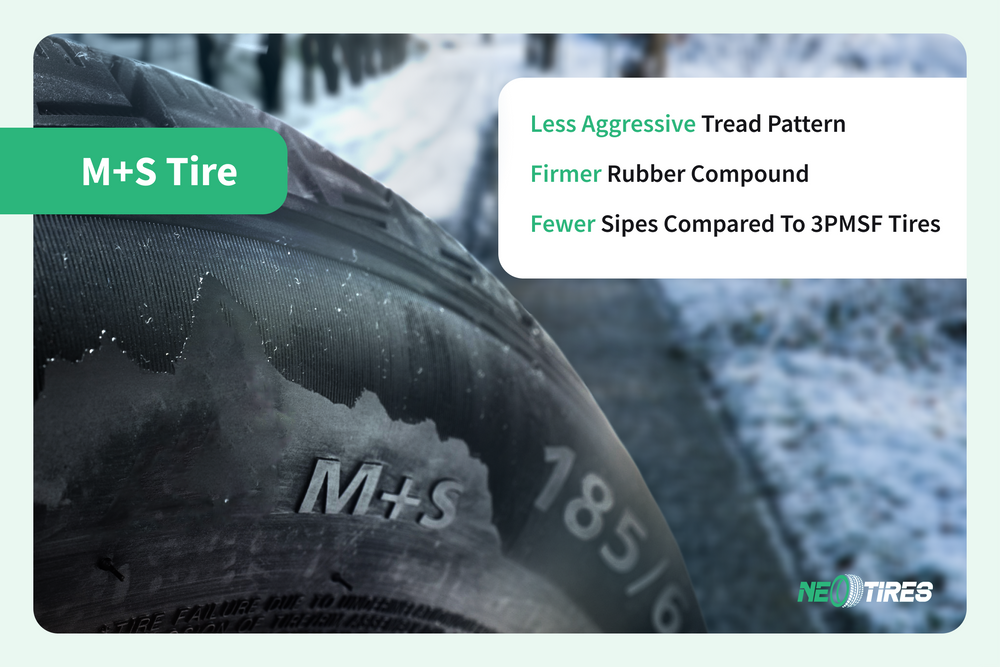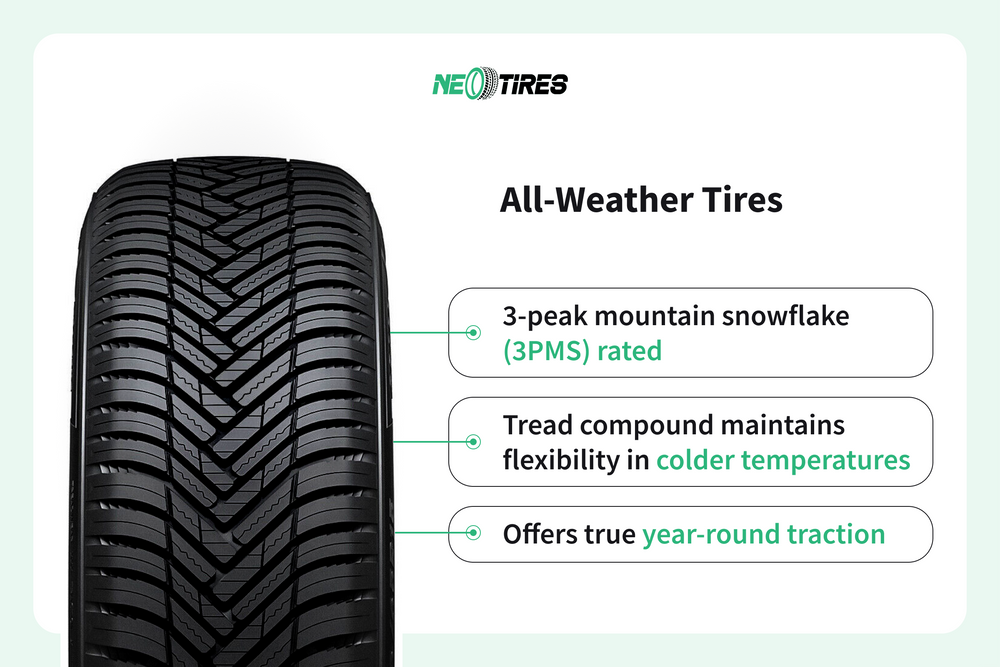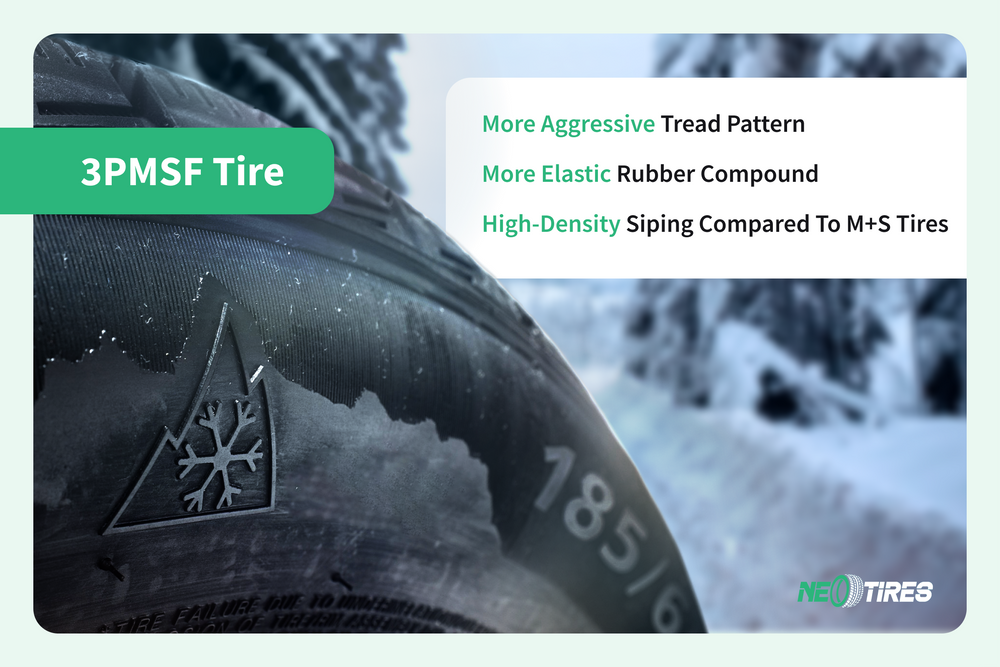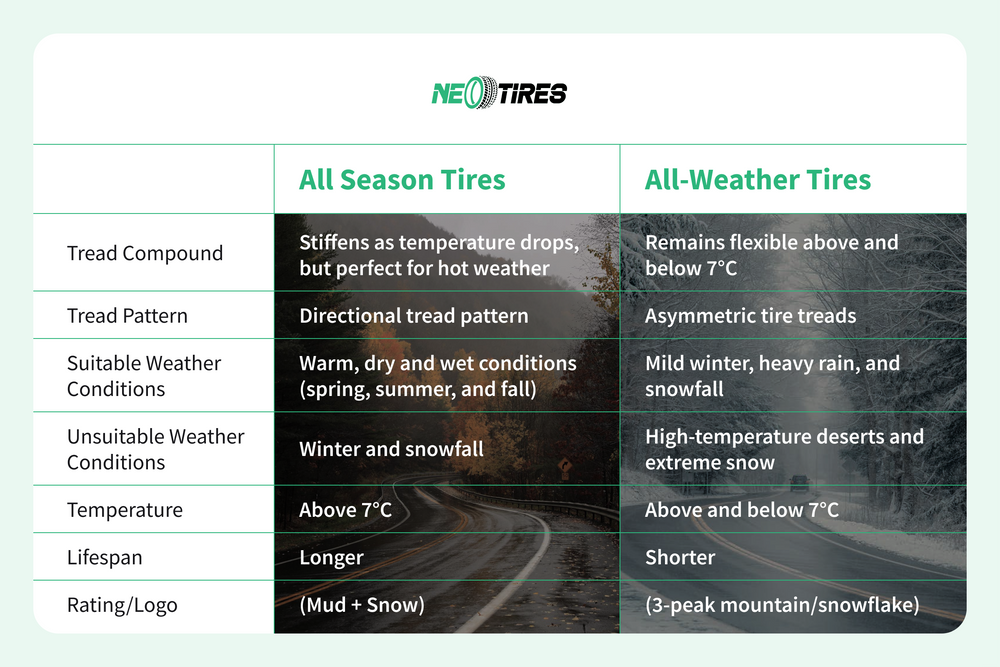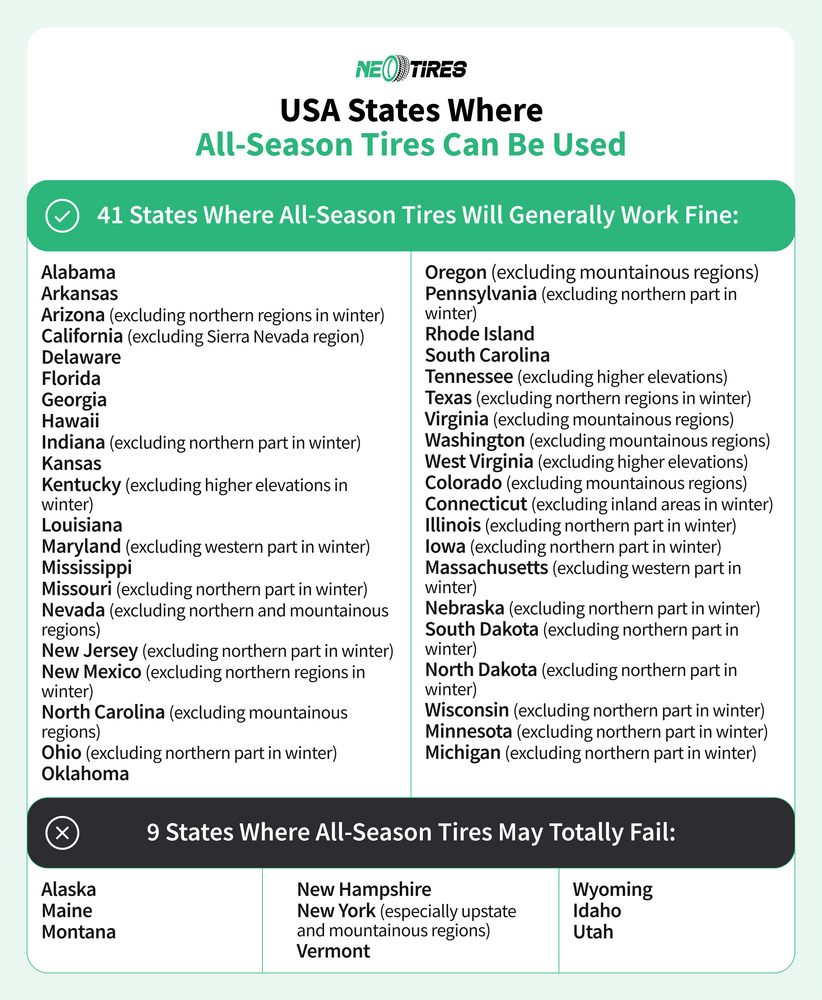The debate between all-weather and all-season tires can confuse many drivers. People often think they are the same, but they have important differences. This section will help you understand the difference between them so you can choose the best one for snow.
What Are All-Season Tires?
AS tires are made to work in many types of weather: dry, wet, cold, and warm. They offer a good grip on both wet and dry roads and work well in light snow.
Key Features
Three key features determine an AS tire:
- Symmetrical tread patterns (usually)
- Harder rubber compounds than summer tires
- Moderate tread depth for grip in wet and light snow
Pros and Cons
Pros
This tire category is suitable for most weather conditions and lasts a long time, about 5,000 to 7,000 miles.
Cons
These tires don’t do well in harsh weather, like heavy snow or ice. They also don’t perform as well in a hot climate as summer tires. AS tires perform less steadily than high-performance tires.
Is There a Symbol for All Season Tires?
They typically feature "M+S" symbol on their sidewalls, which means they are good in light snow.
The NHTSA says AS tires balance performance in wet and dry conditions, with some ability to handle winter. However, they don't perform as well as winter or summer options in cold or hot climates. Therefore, dedicated winter tires are the go-to when choosing between season and winter tires for a harsh climate.
Popular All-Season Tires
- Michelin Primacy MXV4
- Goodyear Assurance WeatherReady
- Continental TrueContact Tour
What Are All Weather Tires?
All-weather tires combine reliable winter performance with decent summer versatility. You can use them year-round, but they work better in harsh winter conditions. They are certified for ice and deep snow and feature the 3PMSF (3-Peak Mountain Snowflake) symbol.
Key Features
This class has softer rubber, which contributes to better grip in winter. Also, their treads are deeper to handle deep snow.
Pros and Cons
Pros
All weather tires provide dependable year-round traction and steady performance. They perform great in ice and snow (peak mountain snowflake 3pmsf -certified), and you don’t need a replacement for the seasons.
Cons
Because of their softer rubber, all-weather tires wear out faster in hot weather. They don’t perform as well as winter options in severe snow. Similarly, summer tires outperform them in fuel efficiency and dry grip.
What Is the Code for All-Weather Tires?
These tires typically have the 3PMSF symbol. This shows they meet the highest standards for winter performance in harsh winter weather.
Popular All-Weather Tires
What's The Difference Between AS and All-Weather Tires?
The biggest difference is how well they perform in winter. All-weather options, with the 3PMSF symbol, perform better in snow and ice. These stay soft in the cold but wear out faster in warm weather. AS alternatives last longer in warm weather but become stiffer in cold climates.
Dry Conditions
Between the two, all-season tires generally deliver better performance in dry conditions. They have less aggressive tread and harder compounds, which allow them to grip better on dry surfaces.
Wet Conditions
In wet conditions, AS tires offer reliable performance. Their tread design is optimized to control hydroplaning and wet roads. The all-weather type typically performs better in harsh winter weather. Their softer rubber compound and deeper grooves ensure better grip and braking in slush, snow, and ice.
Snow & Ice
All-season tires yield to all-weather tires on ice. According to the Tire and Rubber Association of Canada, "All-weather tires provide cold-weather performance that is superior to an all-season tire and is comparable to a winter tire." This means higher grip during winter driving, shorter braking distance, more confident acceleration, and safer cornering in extreme winter conditions.
Summer Conditions
The harder compound of all-season tires resists high temperatures better than all-weather ones. However, due to softer compounds, the latter have higher rolling resistance in the summer, which affects handling and fuel consumption.
US-Specific Considerations
Regional Climate Variations
Drivers should choose tires according to their local climate, considering the rich U.S. climatic variation. Consider the table below when choosing between them:
| US Area | Winter Severity | Type of Tires Recommended |
| Southeast and Southwest | Mild winters | All-season |
| Northeast and Midwest | Harsh Winters | All-weather |
| Pacific Northwest | Frequent rain/occasional snow | All-weather |
US Regulations
Some states have rules about tire types. For example, Colorado's Traction Law requires snow tires, all-weather tires (with the mountain snowflake symbol), or traction devices during certain times of the year. All-season tires might need extra traction devices like snow chains or snow socks in these areas.
Which is Better, All Season or All Weather?
To choose between the two options, think about:
- The climate where you live
- Your driving habits
- Whether you want to switch tires for the seasons
- Your vehicle type
All-seasons work for most drivers. However, all-weather tires are better if you live in an area with harsh winter weather.
Looking For All-Season or All-Weather Tires?
NeoTires can help you find the right tires for any weather. Whether you need year-round comfort or better winter performance, we’re here to help. Explore our top-rated all-weather and all-season tires, or contact us for expert advice! Drive safely and choose your tires wisely!




